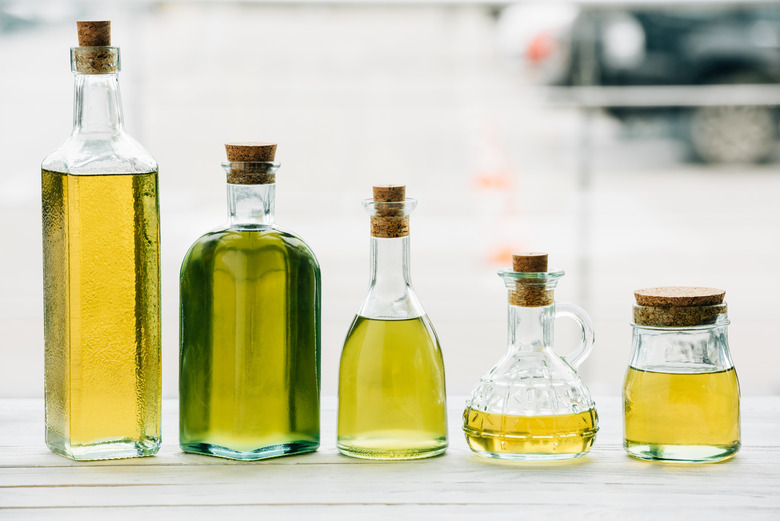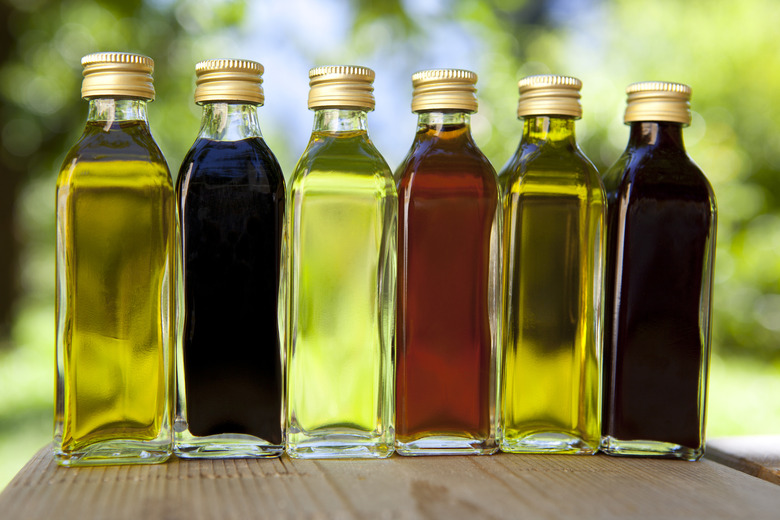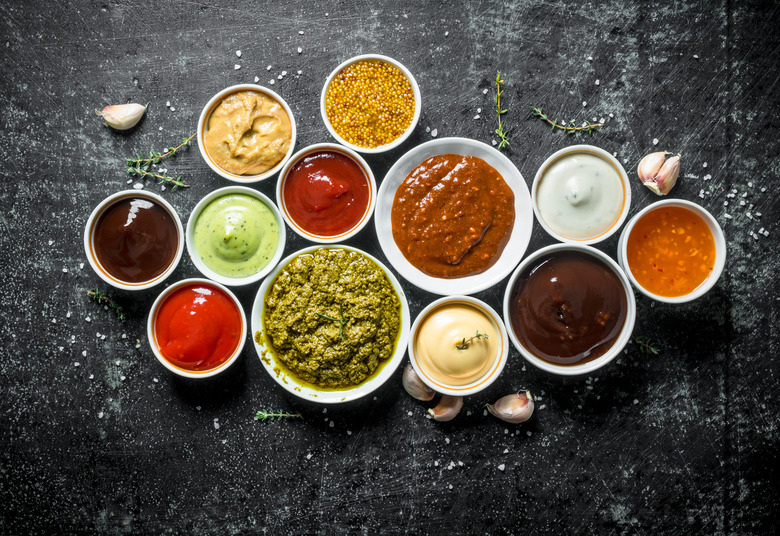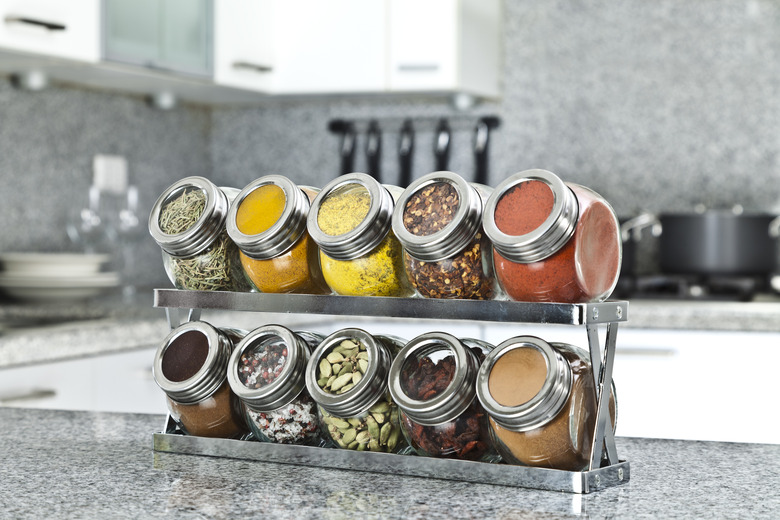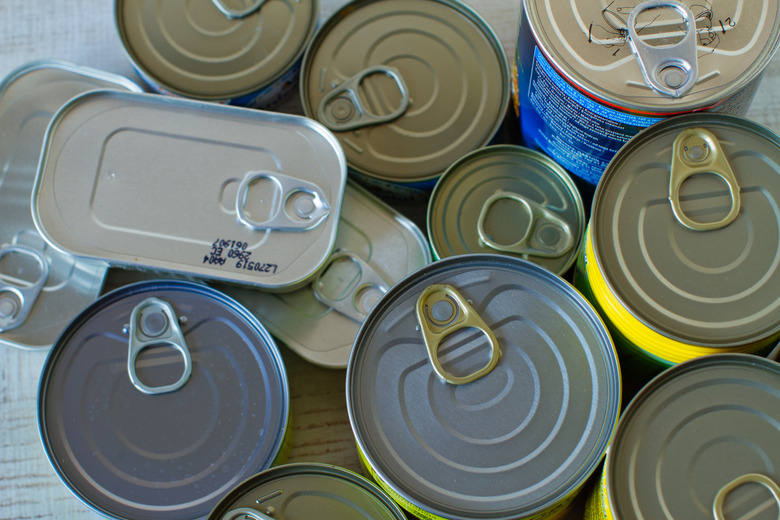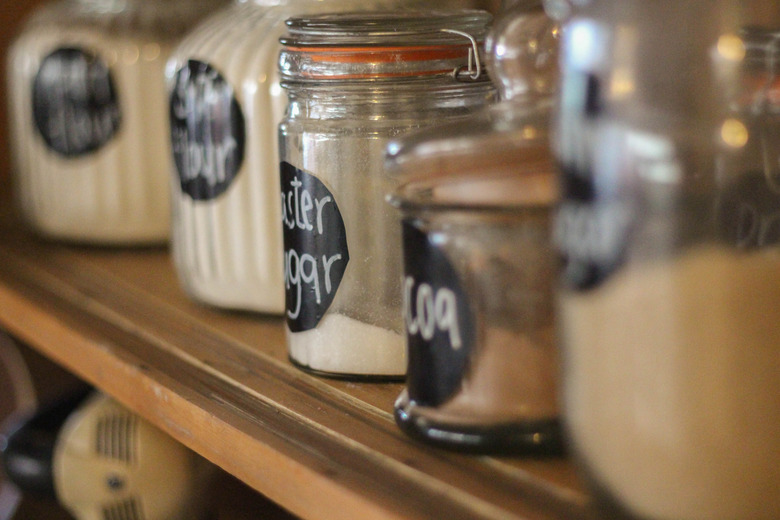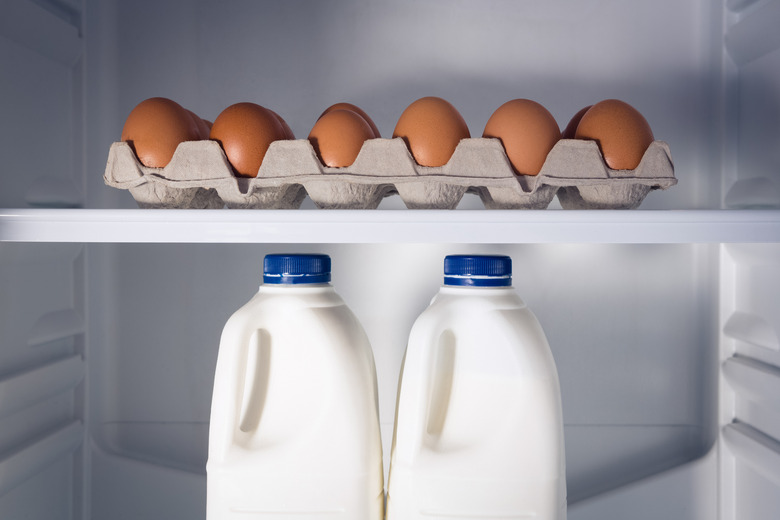How To Stock Your Pantry (And Take It To The Next Level)
If you've spent any time reading recipe roundups here on The Daily Meal, odds are you've come across the phrase "pantry staples," as in "these recipes can be made using pantry staples." But what are pantry staples? Well, they're the basic building blocks for cooking just about everything. Pantry staples are the oil you need to pan sear your meat, the flour and sugar you need to make your bread, the spices and sauces you need to give your food flavor and the grains and canned foods you should have on hand so you can whip up a quick and easy meal any time of day.
The Shelf Life of Rice, Flour and Other Pantry Staples
Of course, what you should keep in your pantry will vary by culture, diet and palate, and we recognize our own biases when putting together this list. If you're allergic to nuts, there's obviously no need to keep nut butters on hand. If you're a pepper head, you may find that a single bottle of hot sauce simply will not do. And if you spend a lot of time cooking food from other countries, you may need spices, condiments, sauces and other specialty ingredients that many American kitchens don't tend to have.
Our guide to pantry staples has two levels: First, a basic list of must-haves for building out your very first kitchen and second, items for more experienced cooks or those looking to amp up their everyday meal rotation.
Oils
Every pantry needs a neutral cooking oil for, well, everything. Whether you're roasting, pan searing, deep frying or sauteing, this is essential. Olive oil and other specialty oils are also good for finishing dishes and making dressings and sauces.
For a basic pantry: Extra virgin olive and neutral cooking oil (vegetable, canola or grapeseed)
Take your pantry to the next level: Sesame, peanut, coconut, avocado, walnut
Vinegars
If you've ever tasted a dish and thought it needed an extra something, that "something" is probably vinegar. Keep a few bottles around for dressings, sauces and to add a bit of brightness to any dish.
For a basic pantry: Distilled white, red wine, balsamic, apple cider
Take your pantry to the next level: Sherry, Champagne, white wine, rice wine
Condiments
Condiments aren't just for dipping fries and topping burgers. Staples like these are also the building blocks for sauces and dressings that can take any dish from drab to fab.
For a basic pantry: Ketchup, yellow mustard, Dijon mustard, mayonnaise, hot sauce, Worcestershire sauce, soy sauce, salsa
Take your pantry to the next level: whole grain mustard, hoisin sauce, fish sauce, Sriracha, gochujang, harissa, miso paste, barbecue sauce, chili paste, tahini, molasses, curry paste
Spices
Spices are, well, the spice of life. These staples can season anything from a weeknight chicken dinner to a full-blown holiday feast. Of course, consider what flavors appeal to you and what cuisines you cook most often when stocking spices. If you're a curry connoisseur, garam masala is a must-have; if you think mild salsa is too spicy, there's no need to stock cayenne.
For a basic pantry: Kosher salt, black pepper, garlic powder, onion powder, ground mustard, oregano, thyme, rosemary, parsley, paprika, bay leaves, crushed red pepper, cayenne, cumin, chili powder, curry powder, ginger, cinnamon, nutmeg, allspice
Take your pantry to the next level: Fennel seeds, coriander, cardamom, turmeric, celery salt, cinnamon sticks, star anise, Chinese five spice, garam masala, roasted garlic powder, marjoram, sage, tarragon, zaatar, berbere, urfa biber, sumac, smoked paprika, white pepper, flaky sea salt, flavored salts
Canned and jarred goods
Whether you need to whip up a quick soup for lunch or want to add some crunch to your lunch, canned and jarred goods are versatile items to keep in your cabinets so you can make any meal in a pinch.
For a basic pantry: Peanut butter (or other nut butter), jelly or jam, olives, pickles, black beans, kidney beans, chickpeas, tomato paste, jalapenos, canned whole tomatoes, tomato sauce, pickles, chicken or vegetable stock or broth, canned fruit, canned vegetables (corn, green beans, peas or whatever you prefer)
Take your pantry to the next level: Capers, canned or oil-packed tuna, beef broth or stock, seafood broth or stock, anchovy paste, anchovies, cannellini beans, artichoke hearts
Pasta, rice and grains
With a long shelf life, pasta, rice and grains like oats and quinoa can add some heft and starch to your dinner with little cost. If you keep a few kinds of pasta in your pantry alongside oils and spices, you're never too far away from a full-blown dinner.
For a basic pantry: one long pasta (spaghetti, angel hair, fettuccine), one short pasta (farfalle, fusilli), one tubular pasta (macaroni, penne, ziti), short grain white rice, unseasoned breadcrumbs, panko breadcrumbs, crackers, sliced bread (whatever your preference is), rolled oats, one dried grain (quinoa, farro, barley, etc.), lentils
Take your pantry to the next level: additional dried grains (spelt, freekeh, bulgur), couscous, chia seeds, hemp seeds, flax seeds, whole wheat pasta, brown rice, jasmine or basmati rice, long grain white rice, rice noodles, egg noodles, ramen noodles, soba or udon noodles, rice paper wrappers
Baking goods
With these items on hand, you can bake anything from our favorite cookie recipes to bread, pie crusts, muffins, cornbread and more.
For a basic pantry: All-purpose flour, yeast, cornmeal, white sugar, brown sugar, baking soda, baking powder, confectioners' sugar, cocoa powder, vegetable shortening, cornstarch, honey, maple syrup, vanilla extract, semisweet chocolate chips, raisins
Take your pantry to the next level: Cake flour, bread flour, whole wheat flour, almond flour, masa harina, almond extract, bittersweet baking chocolate, dark baking chocolate, corn syrup, gelatin sheets, tapioca balls or starch, other dried fruits
Fresh and fridge staples
Not every pantry staple needs to be kept in the pantry. These fresh staples will make sure you always have what you need for a healthy, hearty dinner. Just make sure you know how to store your food correctly and how long food lasts in your fridge and freezer.
For a basic pantry: eggs, unsalted butter, milk of choice, garlic, onions, all-purpose potatoes (white or red), lemons, carrots, celery, nuts (almonds, walnuts, peanuts, whatever you prefer), salad greens, your favorite fruits and veggies, your favorite fresh herbs (parsley, cilantro, mint), salad greens (arugula, kale, romaine lettuce) cheese (cheddar, colby, jack, or whatever you prefer), yogurt, protein (chicken pieces, ground beef, tofu)
Take your pantry to the next level: shallots, ginger, lemongrass, more fresh herbs (rosemary, basil, oregano), fresh chiles, scallions, limes, kefir, buttermilk, creme fraiche, ricotta, Parmesan, halloumi or queso fresco, sour cream
More from The Daily Meal:
Groceries With Surprisingly Long Shelf Lives
Foods You Should Never Refrigerate and How to Store Them Instead
Brown Eggs Or White? And Other Grocery Questions Answered

